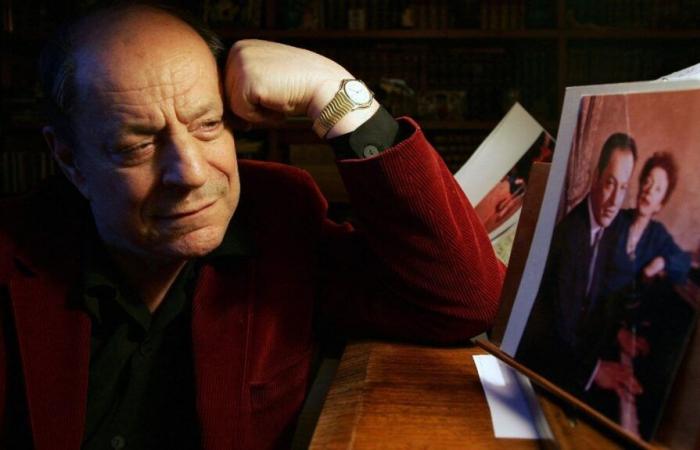This song literally changed the life of its composer, Charles Dumont, who died on the night of November 17 to 18, and that of its interpreter, Edith Piaf. It was not in a theater but on television that the French first heard No, I don't regret anything. December 2, 1960, exclusively for the show Five columns on the front page, Edith Piaf appears small and frail in her eternal black dress. As soon as she sings the first verse, the artist is transformed, as if transcended.
“When Michel Vaucaire (the lyricist) and Charles Dumont (the composer) brought me the first time No, I don't regret anythingit was like a sort of revelation in me, that is to say that I felt that I had to erase everything, that I start everything again, that I completely renew myself”she confided. Charles Dumont was then 31 years old and hardly believed in his chances, Édith Piaf having already refused him several titles. “I was in serious financial difficulties. I wrote this song in anger“, he said in 2013. It was the lyricist Michel Vaucaire, the husband of the singer Cora Vaucaire, who insisted on presenting this song to Edith Piaf.
An appointment was made on October 20, 1960. Edith Piaf's secretary called to cancel, the singer not feeling well, but the two men did not receive the message and showed up at 5 p.m. at Piaf's address, 67 boulevard Lannes in Paris. The secretary is about to send them away when they hear Piaf's voice shouting: “Bring them in since they are there.”
She welcomes them in her dressing gown, slippers on her feet. Charles Dumont sits down at the piano and plays. She then asks him to start again, once, twice, three times… “When he liked a song, explained the composer, she played it to all her friends. I saw everyone parade. I started at five o'clock until two o'clock in the morning (…) I go to bed, the phone rings and she says to me: 'Can't you come back and play the song for me?' I got up and came back to Boulevard Lannes!”
Victim of serious health problems and addictions, the singer had left the stage a year earlier, exhausted. With No, I don't regret anythingshe makes her comeback and saves the Olympia, then on the verge of bankruptcy. On December 29, 1960, everyone in Paris flocked there, delighted to find her. Journalist and writer Jacques Pessis says: “She walks on stage, walks towards the microphone and there's going to be 16 minutes of standing applause. Unheard of in the history of the music hall.”
Edith Piaf sings new titles composed for her by Charles Dumont, including No, I don't regret anything and made a triumph. For Jacques Pessis, “Piaf had a sense of songs, lyrics and music that touched the public because she was born in the street, she grew up there. She immediately understood that in this song, there was an idea, a melody that she could sing. That’s why she totally made it her own.” She will remain at the top of the hit parade of the time, the “star market”, for 48 weeks. It is one of the most famous Edith Piaf songs in the world with La vie en rose.
Mythical song
It has sometimes been said and written that the little Piaf had dedicated No, I don't regret anything to the Foreign Legion. The journalist Jacques Pessis wants to correct: “It was the Legion that took this song to make it an anthem because it corresponded to what the soldiers think, they never regret anything in combat.” We can no longer count the number of artists who have one day covered this legendary song: Dalida, Johnny Halliday, Mireille Mathieu, Nicolas Peyrac, Patricia Kaas, Tina Arena… and, of course, Charles Dumont!
The little Piaf sang it until the end of her life in 1963. And Jacques Pessis concluded: “Piaf has never regretted anything and especially not her return to the stage in 1960 when everyone thought she would not be able to get out of bed. Thanks to the three years that followed on stage, she prolonged her life, she only lived for the stage.”






